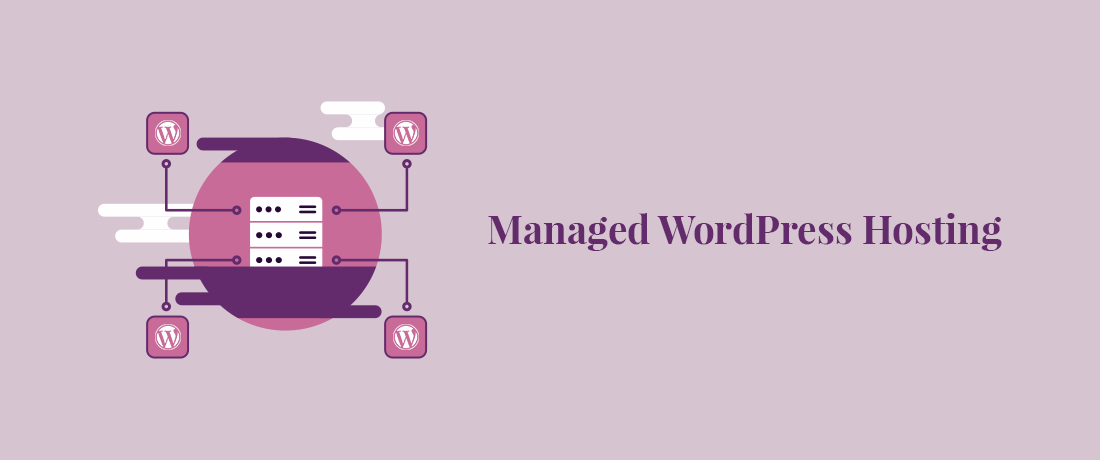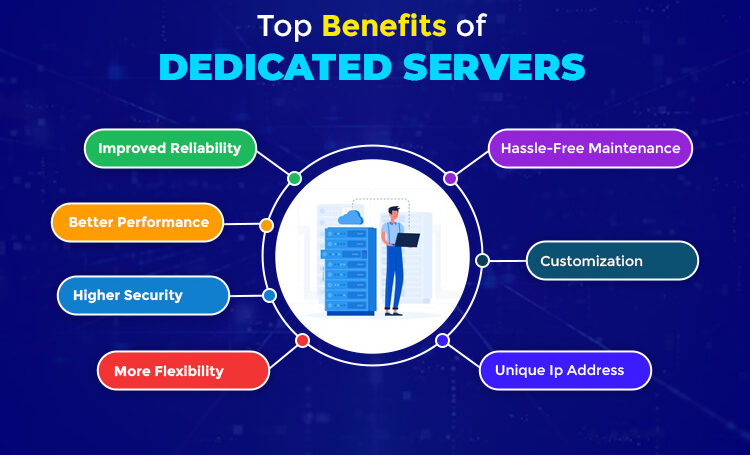How to choose webhosting plan, that fits needs of our website hosting?
- 1 Factors to Consider When Choosing a Web Hosting Plan
- 1.1 Website Traffic:
- 1.2 Hosting Budget:
- 1.3 Technical Requirements:
- 1.4 Website Security:
- 1.5 cPanel-based Web Hosting on Cloud Platform: Benefits and Considerations
- 2 Benefits of cPanel-based Web Hosting on Cloud Platform:
- 2.1 Scalability:
- 2.2 Redundancy:
- 2.3 Better Uptime:
- 2.4 Considerations for cPanel-based Web Hosting on Cloud Platform:
- 3 Benefits of Managed WordPress Hosting:
- 3.1 Improved Website Performance:
- 3.2 Enhanced Security:
- 3.3 Considerations for Managed WordPress Hosting:
- 4 Benefits of Windows Web Hosting:
- 5 Benefits of VPS or VDS Hosting:
- 5.1 Dedicated Resources:
- 5.2 More Control:
- 5.3 Better Security:
- 5.4 Considerations for VPS or VDS Hosting:
- 6 Benefits of Dedicated Servers:
- 6.1 High-Performance Hardware:
- 6.2 Complete Control:
- 6.3 Better Security:
- 6.4 Considerations for Dedicated Servers:
- 6.5 Choosing the Right Hosting Plan Based on Your Website’s Needs
- 6.6 Evaluating Hosting Providers: Key Considerations and Best Practices
- 6.7 Best Practices for Choosing a Web Hosting Plan:
- 7 Conclusion
Choosing the right web hosting plan for your website can be a daunting task, especially if you’re not familiar with the technical aspects of web hosting. With so many options available, it’s essential to understand the various types of web hosting plans and their features to ensure you choose the right strategy that fits your website’s needs. In this article, we’ll discuss the different web hosting plans available and how to select the right plan for your website.
Factors to Consider When Choosing a Web Hosting Plan
Before choosing a web hosting plan, you must evaluate your website’s needs and the factors influencing your hosting requirements. Here are some key factors to consider:
Website Traffic:
The number of visitors your website receives daily or monthly influences your hosting requirements. If your website attracts high traffic, you’ll need a hosting plan with adequate resources to handle the traffic spikes.
Hosting Budget:
The cost of hosting plans varies, and you must choose a plan that fits your budget. However, don’t compromise on quality for price, as you may end up with a slow website or poor uptime.
Technical Requirements:
Your website’s technical requirements determine the type of hosting plan you need. For instance, if your website requires a specific operating system or programming language, you’ll need a hosting plan that supports those requirements.
Website Security:
Web security is crucial, and you need to choose a hosting plan that provides adequate security features like SSL certificates, DDoS protection, and firewalls.
cPanel-based Web Hosting on Cloud Platform: Benefits and Considerations
cPanel is a popular web hosting control panel that simplifies website management tasks like creating email accounts, installing apps, and managing domains. Cloud-based cPanel hosting provides additional benefits like scalability, redundancy, and better uptime.
Benefits of cPanel-based Web Hosting on Cloud Platform:
Scalability:
Cloud hosting allows you to scale resources up or down as your website’s traffic demands change. This means you can upgrade your hosting plan when your website grows and you need more resources.
Redundancy:
Cloud hosting provides redundancy by replicating data across multiple servers. This ensures that your website remains online even if one server fails.
Better Uptime:
Cloud hosting provides better uptime than traditional Hosting, as your website’s resources are spread across multiple servers. This ensures that your website remains online even during traffic spikes.
Considerations for cPanel-based Web Hosting on Cloud Platform:
- Cost: Cloud hosting is generally more expensive than traditional Hosting, but the benefits outweigh the cost.
- Technical expertise: Cloud hosting requires technical expertise to manage, and you may need to hire a server administrator to manage your hosting environment.
- Managed WordPress Hosting: One-Click Installation, Daily Backups, and More
WordPress is a popular content management system (CMS) used by millions of websites worldwide. Managed WordPress hosting simplifies WordPress management by providing one-click installation, automatic updates, daily backups, and security features.
Benefits of Managed WordPress Hosting:
Easy WordPress Management: Managed WordPress hosting provides a user-friendly interface that simplifies WordPress management tasks like installing plugins and themes.
Improved Website Performance:
Managed WordPress hosting optimizes your website’s performance by providing features like caching, a content delivery network (CDN), and an optimized server environment.
Enhanced Security:
Managed WordPress hosting provides enhanced security features like automatic updates, malware scanning, and DDoS protection.
Considerations for Managed WordPress Hosting:
- Cost: Managed WordPress hosting is generally more expensive than traditional Hosting, but the benefits outweigh the cost.
- Limitations: Managed WordPress hosting may limit your access to certain features, and you may need to upgrade to a higher plan to access those features.
- Windows Web Hosting: Meeting the Needs of Microsoft-Based Websites
Windows web hosting is designed for sites that require Microsoft-based technologies like ASP.NET, MS SQL Server, and Windows Server. Windows hosting provides a platform for running Windows-based applications and websites.
Benefits of Windows Web Hosting:
Compatibility with Microsoft-based Technologies: Windows hosting provides a platform for running Microsoft-based applications and websites, making it an ideal choice for businesses that rely on Microsoft technologies.
Easy to Use:
Windows hosting provides a user-friendly interface that simplifies website management tasks like creating email accounts and managing domains.
Better Security:
Windows hosting provides better security features like integrated firewall and anti-virus protection.
Considerations for Windows Web Hosting:
Cost: Due to licensing costs, Windows hosting is generally more expensive than Linux hosting.
Limited Compatibility: Windows hosting may not be compatible with open-source applications and technologies that run on Linux.
VPS or VDS Hosting: When Guaranteed Resources are a Priority
Virtual Private Server (VPS) or Virtual Dedicated Server (VDS) hosting provides a dedicated hosting environment with guaranteed resources like CPU, RAM, and storage. VPS/VDS hosting offers more control and flexibility than shared Hosting and is ideal for websites that require more resources.
Benefits of VPS or VDS Hosting:
Dedicated Resources:
VPS/VDS hosting provides dedicated resources like CPU, RAM, and storage, making it an ideal choice for websites that require more resources.
More Control:
VPS/VDS hosting provides more control and flexibility than shared Hosting, allowing you to install custom software and configure your hosting environment.
Better Security:
VPS/VDS hosting provides better security features like isolated Hosting, a website environment, and root access.
Considerations for VPS or VDS Hosting:
- Technical Expertise: VPS/VDS hosting requires technical expertise, and you may need to hire a server administrator to manage your hosting environment.
- Cost: VPS/VDS hosting is generally more expensive than shared hosting, but it provides better performance and resources.
- Dedicated Servers: High-Performance Hardware for Demanding Websites
Dedicated servers provide high-performance hardware for demanding websites that require more resources and control. Dedicated servers offer a hosting environment with dedicated resources like CPU, RAM, and storage.
Benefits of Dedicated Servers:
High-Performance Hardware:
Dedicated servers provide high-performance hardware like the latest AMD and Intel CPUs, blazing-fast SSD storage, and lots of RAM to run your business website smoothly.
Complete Control:
Dedicated servers provide complete control and flexibility over your hosting environment, allowing you to install custom software and configure your hosting environment.
Better Security:
Dedicated servers provide better security features like an isolated hosting environment and root access.
Considerations for Dedicated Servers:
- Technical Expertise: Dedicated servers require technical expertise to manage, and you may need to hire a server administrator to manage your hosting environment.
- Cost: Dedicated servers are generally more expensive than shaHostingVPS/VDS hosting but provide high-performance hardware and dedicated resources.
Choosing the Right Hosting Plan Based on Your Website’s Needs
Choosing the right hosting plan depends on your website’s needs and the factors influencing your hosting requirements. Here are some tips for choosing the right hosting plan based on your website’s needs:
- Evaluate your website’s traffic and resource requirements and choose a hosting plan to handle your website’s traffic.
- Consider your hosting budget and choose a plan that fits your budget while providing adequate resources and performance.
- Evaluate your technical requirements and choose a hosting plan that supports your website’s technical needs.
- Consider your website’s security requirements and choose a hosting plan with adequate security features.
Evaluating Hosting Providers: Key Considerations and Best Practices
Choosing the right hosting provider is essential to ensure your website’s performance, uptime, and security. Here are some key considerations and best practices for evaluating hosting providers:
- Uptime Guarantee: Look for a hosting provider with a high uptime guarantee, preferably 99.9% or higher.
- Performance and Speed: Evaluate the hosting provider’s performance and speed metrics, including server response time and page load speed.
- Security Features: Evaluate the hosting provider’s security features, including firewalls, anti-virus protection, and data backups.
- Support and Customer Service: Evaluate the hosting provider’s support and customer service options, including 24/7 technical support, phone and chat support, and knowledge base resources.
- Pricing and Plans: Evaluate the hosting provider’s pricing and plans, including renewal rates, discounts, and features in each plan.
Best Practices for Choosing a Web Hosting Plan:
- Understand Your Hosting Needs: Evaluate your website’s traffic, resource requirements, and technical needs to choose a hosting plan that fits your requirements.
- Research Hosting Providers: Research different hosting providers and evaluate their performance, uptime, security, and support features.
- Compare Hosting Plans: Compare hosting plans from different providers to evaluate their pricing, features, and benefits.
- Check Reviews and Ratings: Check online reviews and ratings for hosting providers and plans to evaluate their reputation and customer satisfaction.
- Test Hosting Services: Test the hosting provider’s services before committing to a long-term contract to evaluate their performance, speed, and support.
Conclusion
Choosing the right web hosting plan is essential to ensure your website’s performance, uptime, and security. Understanding your website’s needs and evaluating different hosting options based on performance, security, and support can help you choose the right hosting plan.
Whether you choose cPanel-based web hosting on a Cloud platform, WordPress-managed hosting, Windows web hosting, VPS/VDS hosting, or dedicated servers, evaluate the hosting options carefully and choose a plan that fits your requirements and budget. Following best practices for assessing hosting providers and selecting a hosting plan can ensure your website’s success and growth.






















